The Brontë sisters embraced modern technology throughout their life, but of course they could not have dreamt of the technology we have at our disposal today nor of the huge technological advances happening right now. In today’s post we’re going to look at how the Brontës utilised emerging technology in their own time, and ponder what they would have thought of the very latest advance: AI.
The early to mid nineteenth century was a time of huge change in England, a time when the Industrial Revolution exploded, bringing rapid change – for better and for worse. We can see the impact this had in Charlotte Brontë’s novel Shirley – a brilliant book which looks at the impact of increasing mechanisation on four individuals and on society in general.
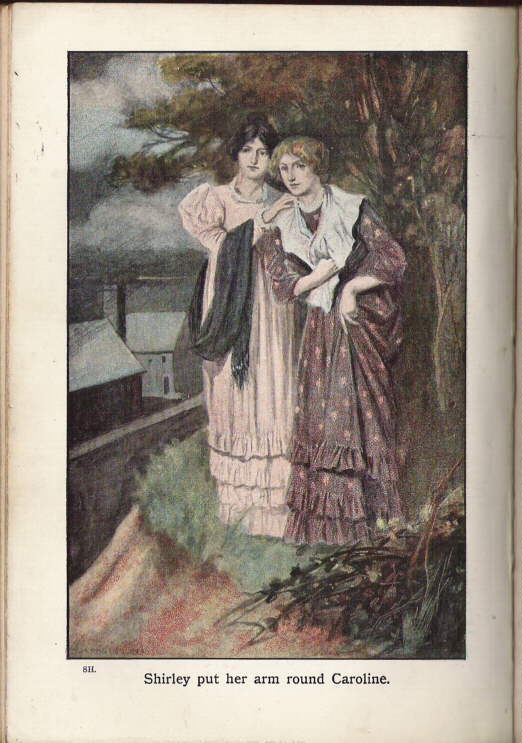
Shirley presents a very believable depiction of a northern district at the time of the Luddite rebellions, when machines were being smashed, factories attacked, protesters being arrested and executed and mill owners being assaulted and sometimes killed. It is so believable and compelling because Charlotte Brontë was a brilliant writer, of course, but also because it was a situation the Brontës knew all too well in real life.
Increasing mechanisation caused huge unrest across the north of England, and Haworth itself was deeply affected by the changes. It was potentially a source of revolt, which was perhaps one reason that Patrick Brontë kept a loaded gun by his bed (and taught Emily Brontë to shoot also, an act at which, like everything else, she excelled).
Other technological advances that the Brontës embraced were the changes in writing technology, so the Brontë Parsonage museum shows their progress from bird feather quills to dip pens. And they also embraced perhaps the biggest technological and social advancement of the age: the emergence of the railway. This opened up the country like never before, so it was the railway which allowed Charlotte and Ellen Nussey to holiday on the Yorkshire coast, and the railway which allowed Charlotte and Anne Brontë to travel to London in the summer of 1848. Journeys which would have been long, costly and hazardous could now be completed relatively cheaply and in a matter of hours. Charlotte, Emily and Anne saw the potential that the railways brought, so much so that they even became railway shareholders.
So, let’s fast forward to today. I was this week, at my work in The Sheffield Cats Shelter, given a demonstration of a system which is already completely revolutionising the world around us. Known as ChatGPT it’s a powerful, easily accessible and completely free way to use AI or Artificial Intelligence.
Of course the system isn’t actually ‘intelligent’ as we know it, but it does have access to over 22 billion documents which it constantly consults and churns around, so that you can ask it anything, or ask it to create anything, and it will do it in the click of your fingers. In short, it instantly knows more on any subject, and has ‘read’ more on any subject, than the greatest of human experts. To demonstrate what it can do I have asked it to write poems about four Brontë siblings. All I did was type into its system, “Write a poem about Anne Bronte” (and then Emily, Charlotte and Branwell) and within a second it had returned the results which I produce unedited below:
Anne Brontë
In moors embraced by twilight’s grace,
Where windswept whispers softly chase,
A soul of strength and fervent fire,
Was born to blaze, aspire, inspire.
Anne Brontë, a beacon gleamed,
In the shadows, she redeemed,
Her quill a sword, her words a light,
To pierce the dark, dispel the night.
With quiet courage, she dared to roam,
Through life’s wild maze, a path to own,
In worlds of tales, she wove her dreams,
A tapestry of truth it seems.
Her heart imbued with love profound,
In fragile forms, her truths unwound,
She grasped the human soul’s despair,
And painted hope through depths of care.
Her verses penned in ink and tears,
Unravelled sorrows, silenced fears,
Her tales adorned with virtue’s might,
Where wrong was shunned, and right took flight.
Her “Agnes Grey” revealed the plight,
Of those who served, their hearts alight,
In empathy, she lent her ear,
To voices muted, yet sincere.
And then, the bell tolled solemnly,
“The Tenant of Wildfell Hall,” you see,
A testament to strength and will,
Against the odds, a spirit still.
She sought to pave the way for change,
In stifling norms, she’d rearrange,
A woman’s place, her dreams allowed,
With courage, she’d break through the shroud.
Though fate’s harsh hand cut short her days,
Her words outlast life’s fleeting haze,
Her legacy, a sacred spark,
Ignites the world with truths remark.
So, let us raise our hearts on high,
In praise of Anne, whose words won’t die,
Her spirit soars through time and space,
In moors embraced, a lasting grace.
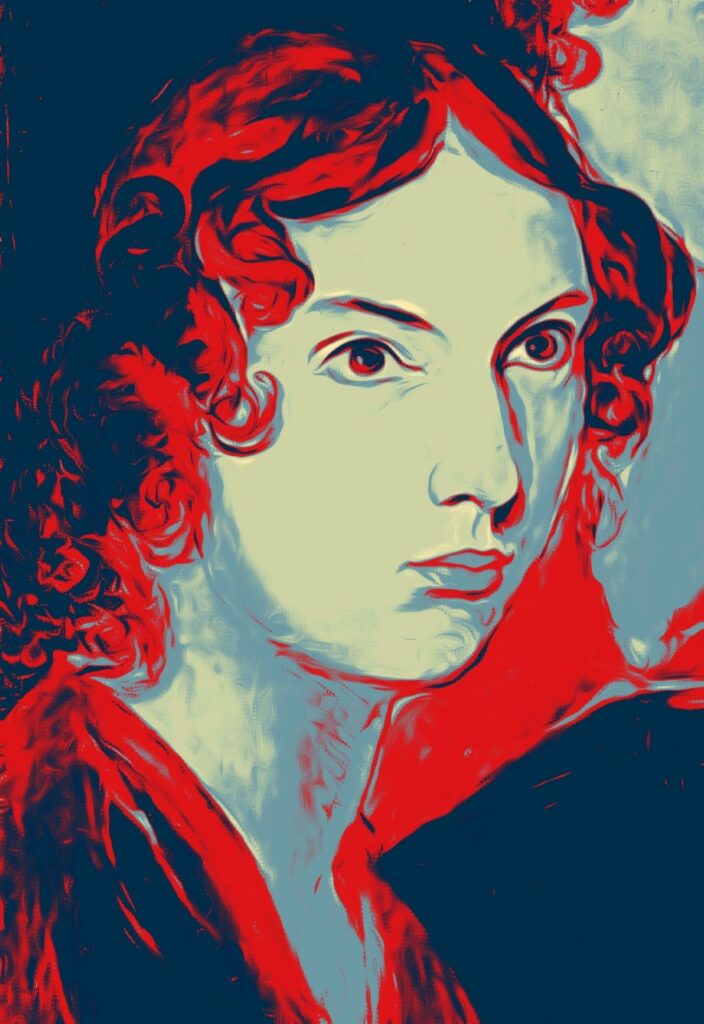
Emily Brontë
In realms of wild and wuthering skies,
Where tempests roared and spirits rise,
A soul ablaze with fierce desire,
A poetess, her words inspire.
Emily Brontë, untamed and free,
A firebrand of creativity,
With ink-stained hands, she’d weave her tale,
Of love and loss, the windswept gale.
Her “Wuthering Heights,” a tempest’s dance,
In darkened moors, a fateful trance,
Heathcliff’s passion, Catherine’s flight,
A haunting tale of love’s cruel might.
In solitude, she found her might,
Among the hills, her mind took flight,
Her soul immersed in nature’s art,
The earth, the sky, her very heart.
With pen in hand, she’d bare her soul,
In verses that would take a toll,
On those who glimpsed her inner strife,
Her words, a glimpse into her life.
Her mystic bond with realms unseen,
In dreams and visions, she’d convene,
With phantoms of a world unknown,
Her spirit, restless and alone.
Yet through the shadows, brilliance shone,
In every line her thoughts had sewn,
Her words, a testament of might,
That pierced through darkness, brought forth light.
And though her time on earth was brief,
Her legacy, a bittersweet relief,
Her verses echo through the years,
A testament to pain and tears.
In lands of wild and wuthering skies,
Her spirit soars, forever flies,
Emily Brontë, a soul of fire,
A poetess, whose words inspire.
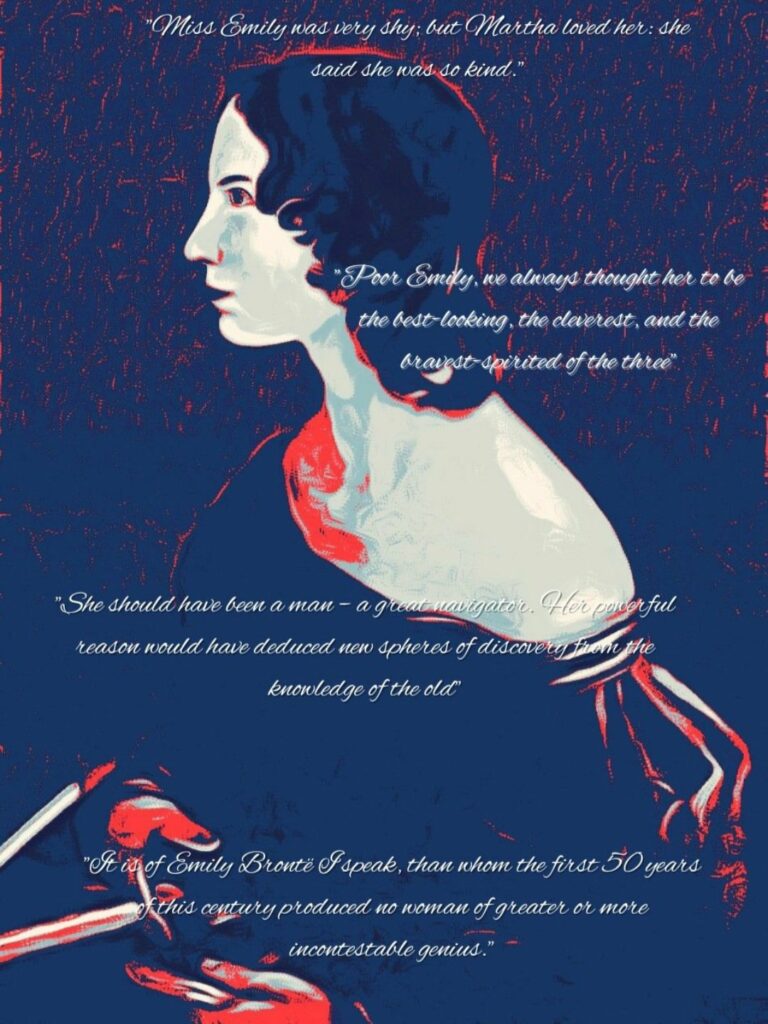
Charlotte Brontë
In the realm of words and ink,
A soul ablaze with thoughts to think,
A writer’s heart, fierce and refined,
Charlotte Brontë, a gifted mind.
Through stormy seas of grief and pain,
She found her solace, quelled disdain,
With pen in hand, she’d set her flight,
To realms of passion, dark and bright.
In “Jane Eyre,” a tale of might,
A governess with soul alight,
Her spirit kindled, love unfurled,
Defying odds, she’d brave the world.
A beacon strong in life’s abyss,
Her characters, a looking glass,
Reflecting truth, the human plight,
In love and longing’s endless fight.
Through sorrow’s veil, she’d glimpse the stars,
In whispered dreams and memoirs,
Her words a refuge, fierce and true,
A sanctuary, born anew.
Her heart imbued with dreams so vast,
In “Shirley,” courage unsurpassed,
A woman’s strength, a battle cry,
For justice and equality.
With “Villette,” she’d embark once more,
On paths of love and loss’s shore,
A tale of passion’s tangled weave,
Of unrequited hearts that grieve.
Though masked by male pseudonym,
Her genius shone, a precious gem,
A trailblazer, fierce and strong,
In worlds where women’s rights belong.
Through sorrow’s veil, she’d glimpse the stars,
In whispered dreams and memoirs,
Her words a refuge, fierce and true,
A sanctuary, born anew.
Her legacy, a timeless art,
A fire burning in each heart,
Charlotte Brontë, a guiding light,
Through words, she still ignites the night.
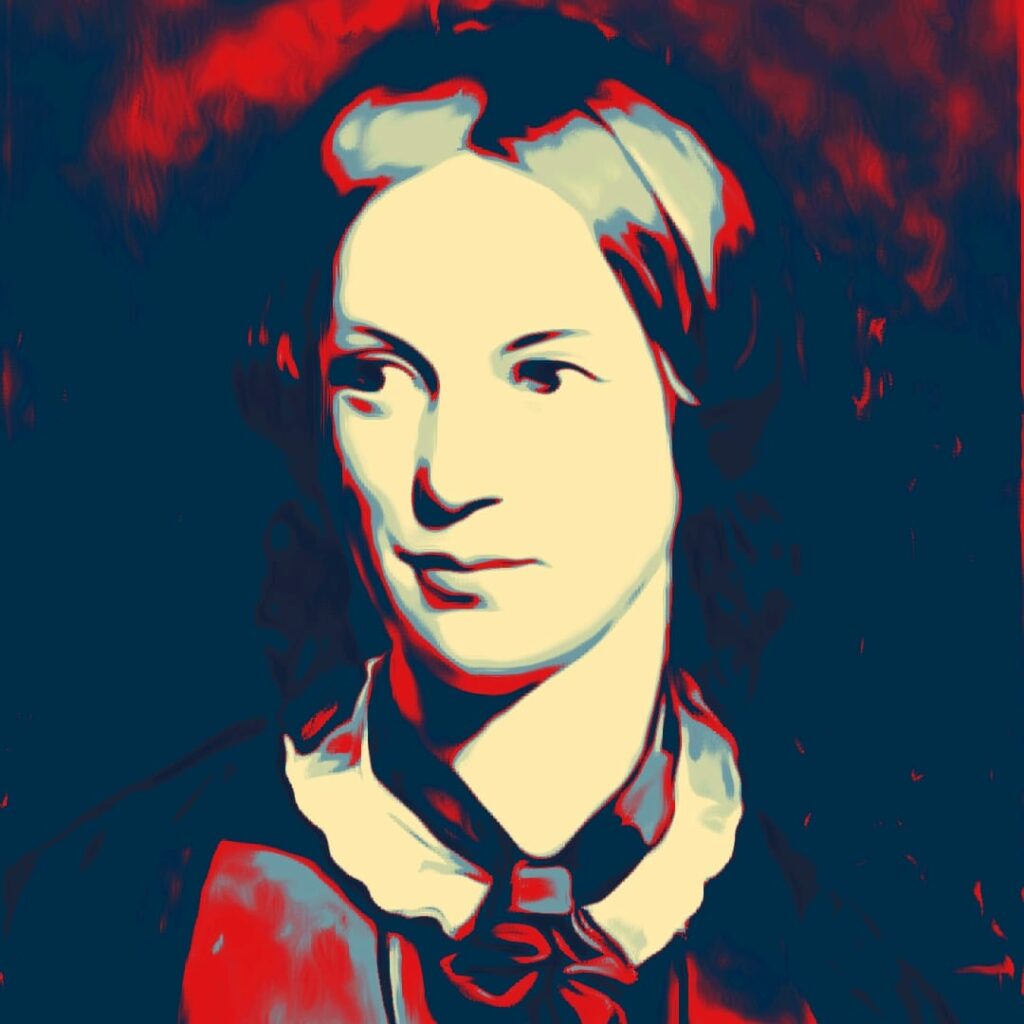
Branwell Brontë
In shadows cast, a tormented soul,
A figure lost in shadows’ dark control,
Branwell Brontë, a spirit wild and free,
Yet bound by chains, he yearned to break and flee.
The brother of three gifted, soaring minds,
Yet his own demons, he could never bind,
With pen in hand, he sought to carve his name,
But sorrow’s ink besmirched his path to fame.
In youthful dreams, his talents held great sway,
But life’s harsh twists would lead his soul astray,
A painter’s brush, a poet’s heart aflame,
Yet tragedy engulfed his fragile frame.
In depths of anguish, he would often dwell,
A captive of despair’s relentless spell,
With every sip, drowning his own pain,
Seeking solace, but finding none to gain.
His heart entwined with vice’s ruthless grasp,
The fleeting whispers of a poet’s rasp,
Yet buried deep, a longing to reclaim,
The dreams that danced within his fleeting fame.
Branwell, the lost Brontë, a troubled soul,
In shadows bound, his name may not extol,
But in the tapestry of their story,
His spirit weaves, a thread of mystic glory.
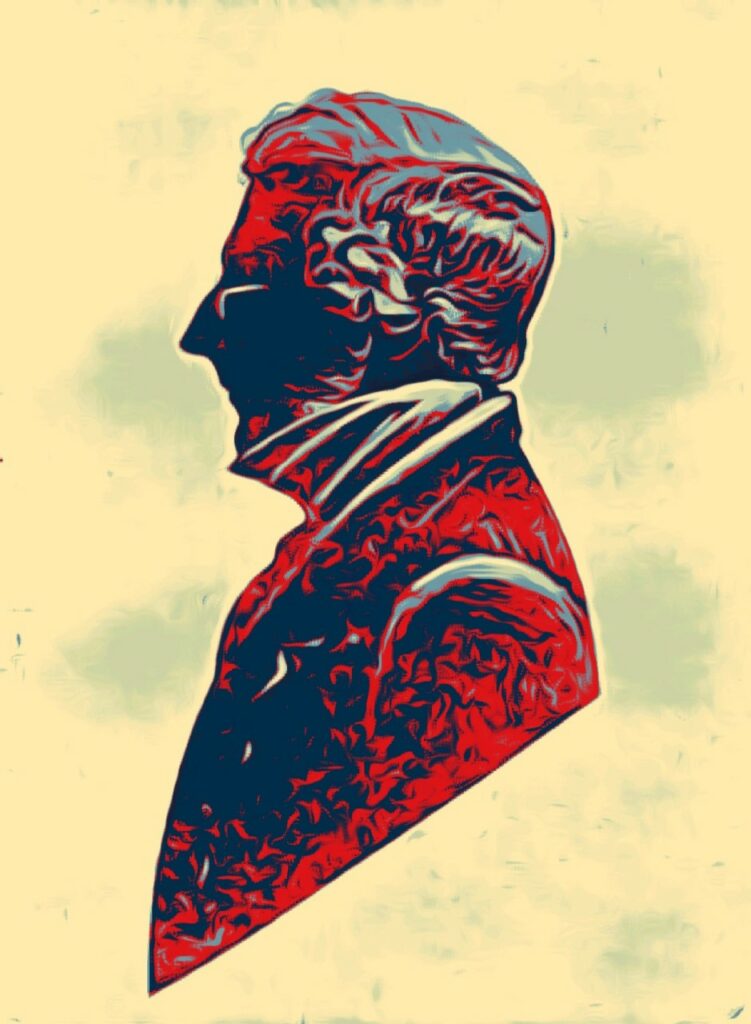
ChatGPT obviously likes to start poems with ‘In’ and is very much in the rhyming couplets old school of versification, but the system is very new and it’s ‘learning’, adapting and improving all the time. The results are, to my mind, very interesting but they raise important questions too.
ChatGPT is, at the moment, much better at prose writing than poetry. It can write on any subject, in any style, for any readership, and on any length, in the time it takes you to click a mouse button.
This has huge implications for society and for writers especially. Already it is being used to write website contents, blogs, social media posts, advertisements – and it will be used to write novels too. And, in my opinion, although people will say differently, it’s already very difficult to tell what has been written by a human and what has been written by artificial intelligence.
AI is free, it doesn’t suffer from writer’s block, and it doesn’t get confused by emotional considerations. At the demonstration I was told of a charity that had used it to write a speech to give to a child whose mother was dying of terminal cancer. For a human that would be an incredibly difficult speech to write of course, but ChatGPT has no emotions – in a second it had crafted a beautiful, compassionate and perfectly phrased speech to give to the child.
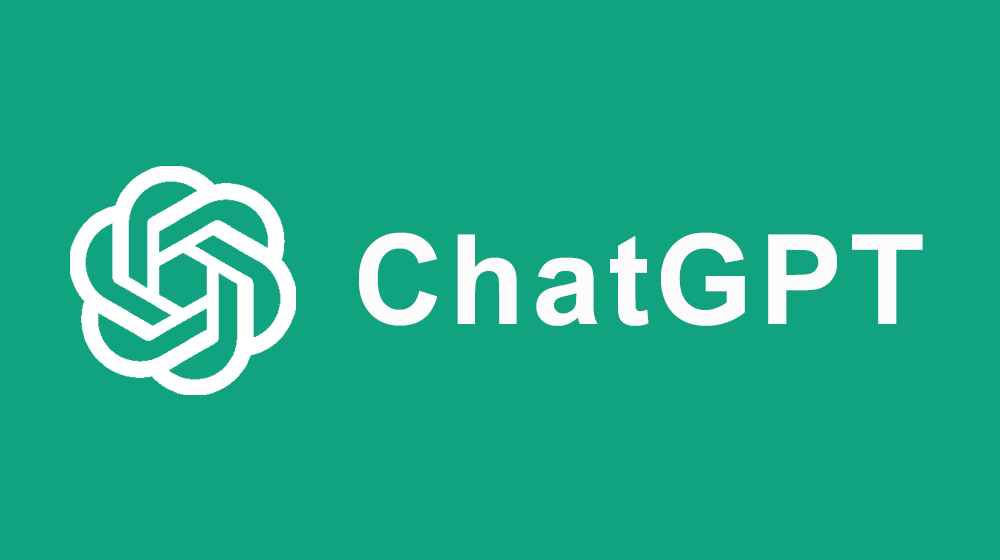
This can bring great advantages, but for a writer and for readers it brings great challenges – for people hoping to become website designers and copywriters, journalists or even authors the future suddenly looks much more challenging. What would the Brontës have thought of Artificial Intelligence? They loved technological advances, but for me this would have been a step too far for them – they loved the art of creation, and they absolutely excelled at it.
I hope to see you again next week for another new Brontë blog post – and I give you my promise now, whilst increasing numbers of websites and blogs will be AI written (without admitting it), this blog will always be written by me – whether that’s a good or bad thing I leave to you to decide, and if you want to try ChatGPT you can do so here: https://chat.openai.com/
